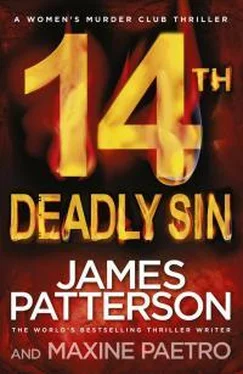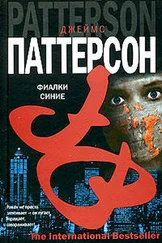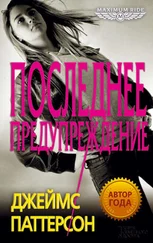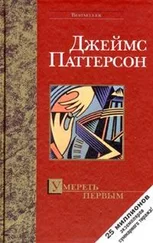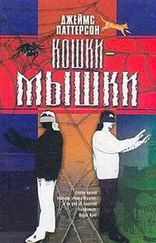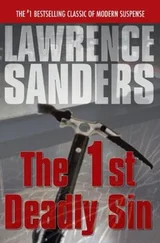I told him about my lunchtime visit to Wayne Broward and how I’d let the guy get his gun on me. Joe scowled, and I could feel him winding up to remind me that I had a child now.
I said, “Please don’t scold me, Joe. I’ve already had some strong words with myself.”
“I haven’t said anything.”
“I know. But you’d be within your rights. The guy is wacko. And by that I mean, his mind hardly tracks at all. He could be demented. I can’t see him making a note to kill a woman every year on May twelfth and then doing it and after that, getting away with it.”
I shook my head, thinking about the house piled high with junk, the way Broward’s mind veered from past to present, and why I was pretty sure he’d never even focused on my badge.
I said, “I turned my back on him. He had a gun.”
“Come here,” said Joe.
I went into my husband’s arms, took a few deep breaths, then pulled him to the sofa and leaned against his shoulder.
“I’m gonna have to tell Brady and Richie about this guy, and after the arraignment the story is gonna get out. And I’m gonna take some crap for going into the guy’s house on a hunch.”
“It was a dead end. The wrong tree,” Joe said. “But Tina Strichler’s killer is still out there.”
“True,” I said. “But I wonder if there really is a pattern to these killings, Joe. Or if linking five separate stabbings to one killer with a mind like a clock is all in our minds. It could just as easily be that there are five different killers with minds of their own.”
CHAPTER 68
IT WAS DAY two of the trial.
Yuki had had a rough night. She and Brady were at opposite sides of the justice system, and the so-called Chinese Wall was in play. She couldn’t talk to him about her case, he couldn’t talk to her about his, and that made conversation forced and sleep barely possible.
She was at her desk at quarter to eight, and Natalie arrived a few minutes later with coffee. They picked apart Parisi’s opening statement, guessed about what he might be planning to do with their witnesses. Natalie told Yuki not to worry.
Zac arrived and stopped in the doorway.
“About a dozen people texted me about your opening yesterday,” he said to Yuki. “Mazel tov. And thanks to both of you.”
Yuki’s mood lifted and, feeling freshly caffeinated, she drove with Natalie to McAllister Street and parked the car in the underground garage.
Once in the courtroom, Natalie gave the videodisc to the clerk and joined Yuki at the counsel table. They spoke softly to each other as the courtroom filled. The proceedings were called to order.
When it was time to present the plaintiff’s case, Yuki rose from her seat, walked past the lectern, and approached the jury box. Today, everything depended on the video.
She said to the jurors, “Good morning, everyone. When I made my opening statement yesterday, I said you would see portions of the police department’s sixteen-hour interrogation of Aaron-Rey Kordell.
“I also said that this case is about one thing: whether or not Aaron-Rey was coerced into making a confession. Because if a confession is coerced, it’s not a confession. And if Aaron-Rey didn’t confess, then he should not have been jailed, and if he had not been jailed, he would not have died.
“I’ve selected portions of the interview to show you, but you’ll be able to read the transcript of the interrogation in its entirety.”
Yuki told the clerk to play the videodisc. The lights dimmed and the video came up on the flat-screen. Aaron-Rey, heavily built and easily six feet tall, sat across a scarred wooden table from two police officers who introduced themselves as William Brand and Stan Whitney.
Whitney was in his thirties; he had a close-cropped beard and round, wire-rimmed glasses. He looked more like a science teacher than a narc. From his posture and tone of voice, he appeared to be sympathetic to Aaron-Rey’s distress.
He said, “Is this how it happened, A-Rey? You got scared? Those dealers. Freakin’ lethal dudes. Armed and dangerous, right? They threatened you and you surprised them, right? You shot them and ran. Because if that’s what happened, you were protecting yourself, and anyone would understand that.”
Aaron-Rey said, “I didn’t shoot them. I didn’t even know they was shot . I found the gun on the stairs and I thought I could make fifty dollars. That’s wrong because it wasn’t my gun. I’m sorry about that.”
Whitney said, “Aaron, listen. You don’t have to lie anymore. What you did is all gonna come out. But if you tell us, we can protect you. That’s what you need to do, son.”
Yuki showed five minutes of Whitney befriending Aaron-Rey, telling him it was safe to confess. “Don’t you want to go home, Aaron-Rey? Don’t you want this to be over?”
“I want to go home.”
Whitney passed a piece of paper across the table. He said, “This paper says that we told you what your rights are and that you’re waiving them because you don’t want a lawyer. You don’t want to complicate this, do you, A-Rey?”
“I didn’t shoot anyone,” Aaron-Rey said.
Brand said, “Good for you, A-Rey.”
He handed the boy a pen, and Aaron-Rey signed his name on the line where the detective put his finger. Brand hardly waited for Aaron-Rey to lift his pen before he whipped the paper away and took it out of the room.
Whitney said, “Feel better now?”
“No,” said Aaron-Rey.
Yuki used the remote to fast-forward to hour six, which was the point where Inspector Brand took the lead.
CHAPTER 69
THE FOOTAGE ROLLED and the jurors’ eyes focused on Inspector William Brand’s interrogation of Aaron-Rey.
Brand was on his feet.
He stalked around the narrow confines of the interview room. He made angry gestures with his arms. At some angles you could see the tattoo on his neck, under his left ear, at the collar line. The tattoo was only an inch square and looked like a cow brand of his initials, WB .
Brand said to his suspect, “You signed this waiver , A-Rey, saying you didn’t need a lawyer, so now you have to tell the truth. That’s what it means. And if you keep lying, you are going to drown in your own crap. Under stand? ”
“I told you the truth,” Aaron-Rey said. He was crying. He put his head down on the table and sobbed into his folded arms.
“You’re a liar, Kordell,” said Brand. “You make me sick. You’re a big man when you have a gun, but look at you now. A lying sack of shit, the worst kind of person, can’t stand up for what he did. And you should get an award for what you did. Taking out those dirtbags. That’s what you did, didn’t you?”
“Nooooo,” said Aaron-Rey.
“You dumb piece of crap,” said Brand. He leaned over and shouted in Aaron-Rey’s face. “I’m trying to help you. Don’t you understand? Tell the goddamned truth and end this. Don’t you want your parents to be proud that you stood up like a man?”
“I didn’t shoot that gun,” Aaron-Rey sobbed.
Yuki forwarded the video again. She said to the jury, “This is hour fifteen and forty-five minutes. Aaron-Rey has had three sodas and a bag of chips. He has waived his rights so that he can go home—that’s his understanding, and he has told the truth. But Inspectors Whitney and Brand aren’t buying it.”
Parisi objected. “Your Honor, the video speaks for itself.”
“I’ll allow it anyway,” said Judge Quirk.
Yuki hit Play. The placement of the individuals in the room was the same. Brand had his hands in his pockets. He was pacing, and his anger was undisguised.
He said, “Last chance I’m giving you to get ahead of this, A-Rey, and then we’re done. You’re going to jail for the rest of your life, or maybe you’ll get the death penalty. Either way, you’re never gonna hug your mama again. Or … you can tell us what happened. You were high. You were confused. You felt threatened. And so you had to defend yourself and shoot those three violent, dangerous men.”
Читать дальше
